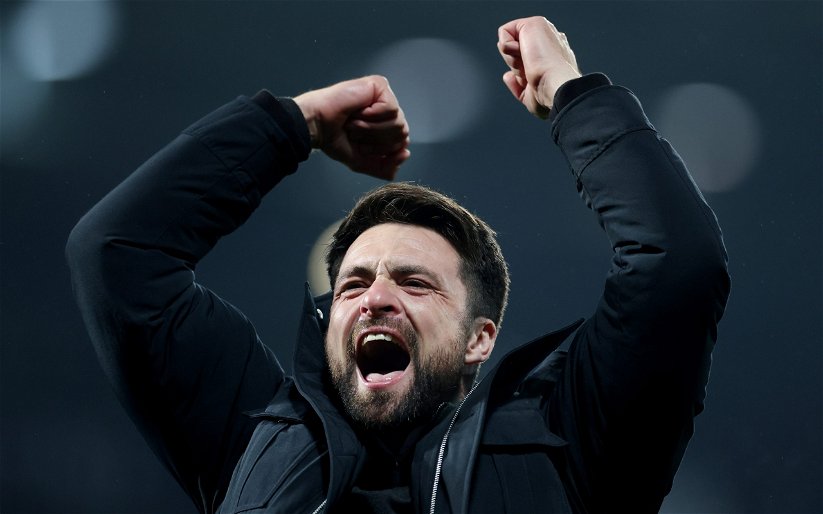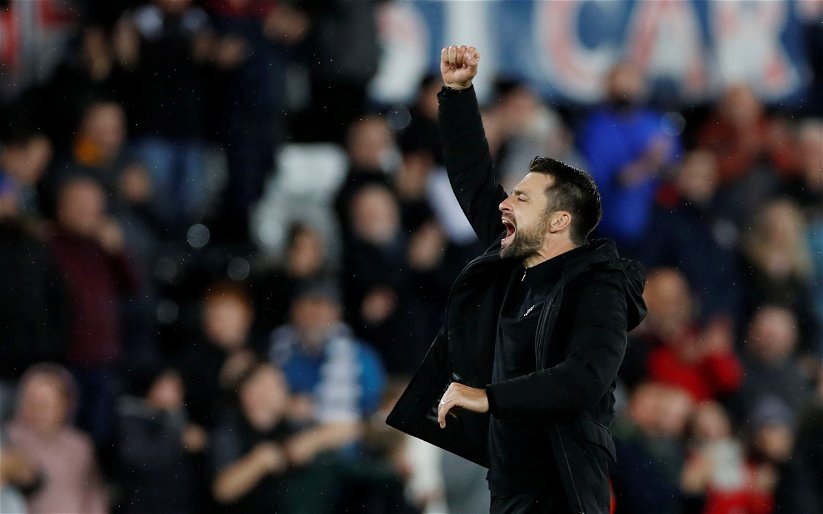In an interview with the Telegraph, Swansea City boss Paul Clement has explained his coaching priorities to get some ‘quick wins’ to help turn things around at the Liberty Stadium.
The Swans were in dire straights when Clement first came in, and on the day he put pen to paper on a contract, his new squad were preparing for a crucial relegation 6-pointer away at Crystal Palace – managed by relegation-specialist and shamed former England manager Sam Allardyce. We had just conceded 7 goals in 2 games over the festive period, confidence was at an all-time low but under the guidance of Alan Curtis – who was later relieved of his first team duties, the Swans won the game 2-1 thanks to a late and unlikely winner from Angel Rangel.
Since then, the Swans have lost just once in the League under Paul Clement – losing 4-0 at home against Arsenal. We’ve won the other 2, against tough opposition, a 3-2 thriller at Liverpool before a 2-1 home victory against Southampton. Both wins saw us avoid conceding first, we scored first, conceded an equaliser but showed great character and belief to go on and get the win.
It’s that self confidence and belief that Paul Clement has brought to the side, and not only that – but a confidence again to play on the front foot and be positive. For far too long, we were playing basic, static and safety-first football that was predictable and lacklustre.
It’s quite different and refreshing under Clement though. But how has he managed to turn it around? It was so bad when Bradley was sacked that many fans had resigned to us going down, and yet now – just 3 games later – we’re level on points with Leicester and Middlesbrough – and we’re out of the bottom three.
Clement told the Telegraph’s Jason Burt that his priority’s when coming in have been ‘coaching, coaching, coaching’. He also talked about getting ‘quick-wins’, not literally wins, but as he explains below – quick wins in how he can increase the level of performance almost overnight.
“Quick decisions, that`s what it`s been all about,”
“Gathering intelligence about the squad, the staffing, implementing what I need to do quickly, parking some stuff to the side – ‘don`t need to deal with that now, but I will deal with it`. Prioritising the coaching of the team – coaching, coaching, coaching.”
“This role really makes you feel alive, every moment,”
“Steve Clarke gave me a great example of how it feels to go from being an assistant to a head coach. He made that transition and he said, ‘You feel everything`.”
“Get some quick wins – I don`t mean quick wins in terms of results but quick wins as to how we can up the level of the players,”
Paul Clement’s high calibre of coaching has been obvious for all to see, and it’s impressive to see how quickly the players have responded with winning performances on the pitch.
Confidence or a lack of it has been a widely given excuse from the players and some of the management for the woeful losing performances, but there have been games – particularly the Palace win – that have debunked those excuses, suggesting that the ability and potential is always there, it’s just whether the players decide to give and show it. The reaction at Palace following the Bournemouth performance was staggering, though not that surprising given that their new boss was watching on from the stands – and later from the touchline.
But Clement has quickly brought in a lot of other elements that have been key to the recent wins. In particular, much improved tactics, game management and an effective game plan – all desperately missing under Bob Bradley. Some of the tactics before Clement’s arrival really were baffling and worryingly basic.
We published one or two articles on it, mainly focusing on how we lost our defensive stability under Bob, mainly down to a lack of a good game plan and defending as one team.
Clement has instantly brought that back, deciding to defend in a tight 4-5-1 shape against Liverpool, and in spells against Southampton too, before using the counter attack to make the most of their limited attacking movement.
Against Arsenal, West Ham and Bournemouth – all at home – we were clearly lacking attacking ability. The defensive problems goes without saying, but when you go 1-0 down in games – especially at home – you’ve got to have attacking ability to try and find an equaliser. We never could, and would roll over and lose by three or four goals.
The arrivals of Tom Carroll and Martin Olsson have helped us massively in an attacking sense. Leroy Fer has also returned to the midfield to add his attacking ability. Clement may have preferred a more defensively solid midfielder to solve our defensive issues, but it looks like he’s going about the completely opposite way – which is bold and refreshing to see.
Hopefully Clement will stick to his 4-3-3 formation, a formation we believe suits us far better than the leaky 4-2-3-1 – that we very often lose in. In the three-man midfield, Jack Cork is the only true defensive player amongst them, with Carroll and Fer far more attacking-minded. Sigurdsson starts out wide but he’s given the freedom to move inside with Carroll and Olsson linking up down the left. With our crossing ability also improved, and with Narsingh and Ayew to come into the mix, Llorente should start seeing better goalscoring chances soon too. We saw him score two goals against Liverpool, while he played a deeper role against Southampton, but a hugely important one as he produced a hold-up masterclass.
Share this article



